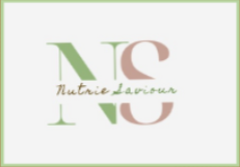As a dietitian, I’m passionate about educating people on the importance of nutrition for overall health, including skin health. When it comes to supporting collagen production naturally, minerals play a crucial role. Let’s delve into some key minerals and their dietary sources to help you achieve radiant, youthful-looking skin:
- Zinc: Zinc is an essential mineral for collagen synthesis and wound healing. It also acts as an antioxidant, protecting skin cells from damage caused by free radicals. Good dietary sources of zinc include:
- Oysters
- Beef
- Chicken
- Pumpkin seeds
- Chickpeas
- Copper: Copper is a cofactor for enzymes involved in collagen synthesis and cross-linking, which enhances skin elasticity. Including copper-rich foods in your diet can support collagen production. Some dietary sources of copper are:
- Organ meats (liver, kidneys)
- Shellfish (crab, lobster)
- Nuts and seeds (cashews, sesame seeds)
- Beans and lentils
- Dark chocolate
- Silicon: Silicon is essential for the formation of collagen and contributes to skin strength and elasticity. While more research is needed, some studies suggest that silicon supplementation may improve skin health. Dietary sources of silicon include:
- Whole grains (oats, barley)
- Brown rice
- Beans and lentils
- Nuts and seeds (almonds, sunflower seeds)
- Leafy greens (spinach, kale)
- Sulfur: Sulfur is a component of amino acids required for collagen synthesis. It also has anti-inflammatory properties, which can benefit overall skin health. Foods rich in sulfur include:
- Garlic
- Onions
- Eggs
- Cruciferous vegetables (broccoli, Brussels sprouts)
- Seafood (salmon, shrimp)
- Magnesium: Magnesium is involved in numerous biochemical processes, including collagen production. It helps activate enzymes required for collagen synthesis and supports overall skin health. Dietary sources of magnesium include:
- Leafy greens (spinach, Swiss chard)
- Nuts and seeds (almonds, pumpkin seeds)
- Whole grains (brown rice, quinoa)
- Legumes (black beans, lentils)
- Avocado
Incorporating these mineral-rich foods into your diet can provide the building blocks your body needs for collagen synthesis and promote healthy, glowing skin from within. Remember to aim for a balanced diet rich in a variety of nutrient-dense foods to support overall skin health and vitality.

